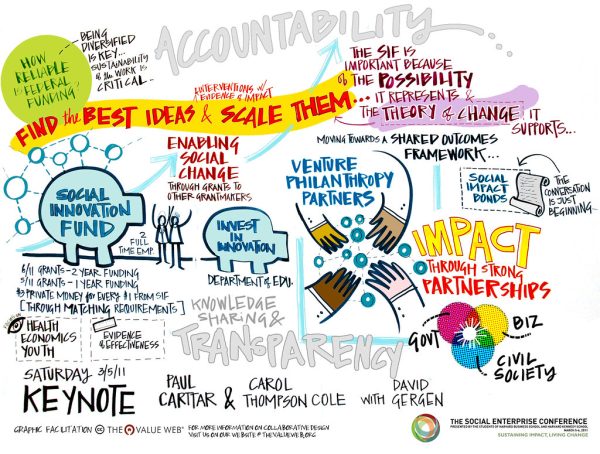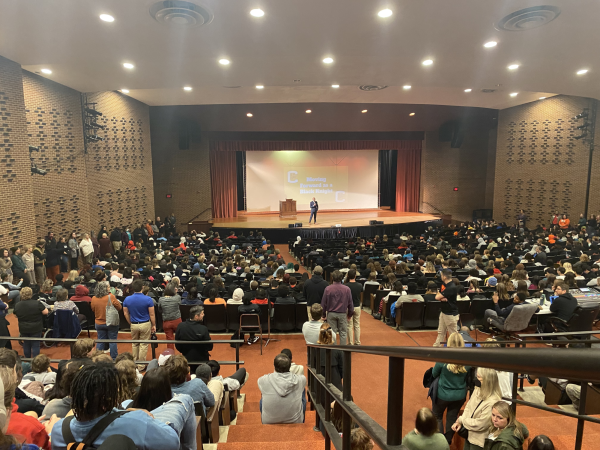The Threat of Record Consolidation: How Innovative Music is Being Undermined by Corporate Interests
April 14, 2023
Do you believe yourself to be an active participant in the media you consume? If you answered yes, consider again. The answer may be more complicated than you think.
In the last couple centuries, there’s been a mass-consolidation of consumer products, brought on by the competitive nature of the capitalist economy, which gradually conglomerated from a free market to a “corporatocracy” or partial rule by corporations.
In food, 10 companies control nearly the entire industry, namely Nestlé, PepsiCo, Coca-Cola, Unilever, Danone, General Mills, Kellogg’s, Mars, Associated British Foods, and Mondelez.
One of the more recent examples of this economic phenomenon is in the music industry, where three massive corporations— sometimes referred to as the “Big 3”— have absorbed 70% of the business. Throughout the 80s, 90s, and 00s, Universal Music Group, Sony Music Entertainment, and Warner Music Group seized nearly every previously independent record label and converted them into subsidiaries, or lesser companies that operate within a powerful business conglomeration.
By cornering the market these monopolists essentially control mainstream music consumption and distribution. One of the biggest appeals of these labels are their connections, and their ability to promote a project or an artist in ways that independent labels can’t usually do due to smaller reach and audience.
Warren Parker, owner of local “basement record label” WarHen, describes a situation where vinyl printing plants were rented out by major companies to print purely for popular artists. “All of the record pressing plants got jammed up last year because of Adele and Red Hot Chili Peppers and Taylor Swift . . . one of the big companies bought out the plant for an entire month solely to press Adele records or whatever . . . they skipped the line because they had the cash to do it . . . there’s no artistic value to that”.
In opposition to the politically driven, expressive trends of the 60s and the masterful, funky trends of the 70s, musical trends since the 80s are highly engineered by corporations to cater to certain popular ideas and sounds that, recently, have gained traction through social media and digital interactions. Rather than a human-led industry, we have a digitized corporation-led one.
As Parker put it, “None of it seems very music forward. It seems very numbers driven, it seems very money driven . . . it gets to a point where there’s way too many people involved”.
For a short period in the 60s and 70s, innovation had a space in the mainstream, where hundreds of medium-sized labels gave artists multiple years and projects to evolve and reinvent themselves as creatives. Unfortunately, this ended in the 80s, a decade marked by reproduced, recycled sounds in pop music. Since then, innovation has taken a backstage to the “mainstream” which has now become an antonym to anything new happening in the industry.
The real threat of consolidation is the monopoly on discovery these businesses have– the music that we are fed by them is made to cater to our comfort zones. We are turned into passive consumers. We need to patronize sounds in the modern generation that aren’t based on retroism or outdated pop biases. Music should challenge and inspire people, just like other art forms.
This isn’t to say that music isn’t still an extremely creative art form– in labels like RCA and Interscope, (subsidiaries of Sony and Universal respectively) highly proficient artists are still dominating the mainstream. Experimental music has thrived since the time of consolidation, where underground artists have gone for more chaotic and disorganized sounds like Glitch-Hop and Noise-Rock.
Independent record labels still thrive locally, and many even dominate certain niches. For example, XL Recordings has been a major player in British and American Rock, RnB, and Hip-Hop, and Stones Throw Records has given a voice to dozens of important American rappers and rockers like MF DOOM and Karriem Riggins. A dominant force in the local scene is Richmond-based label Spacebomb, which uses an older model of label structure, based around a “House Band” and “House Producer” who work with a collective of dedicated musicians and businesspeople to help create a record with an artist. Hundreds of mini labels thrive in cities with vibrant underground art scenes, where a small lineup of artists might be signed to help with physical distribution and concept creation. As is the case with WarHen.
The age of streaming has also led to a big independent movement for musicians– the first time in history where artists can distribute their music completely independently without the help of any record label, independent or major. This can be done with the help of mobile apps like UnitedMasters and Amuse. Social media provides an outlet for self marketing for independent artists, who were previously forced to resort to a flier in a bar and word of mouth. Playlisting is another important new resource for the underground, where artists can be added to popular playlists made by Spotify or Apple Music to boost their streams.
As long as anybody cares about music, innovation will happen. Humans always find a way to create art that truly expresses our species’ beauty and pain. Though it’s doubtful anything will change for the better with the current merger situation, it’s on the consumer to patronize contemporary sounds that aren’t based on decades’ old trends. Be active in your exploration.
“People have been making creative weirdo stuff forever. There’s always going to be somebody out there doing that.” -Warren Parker













